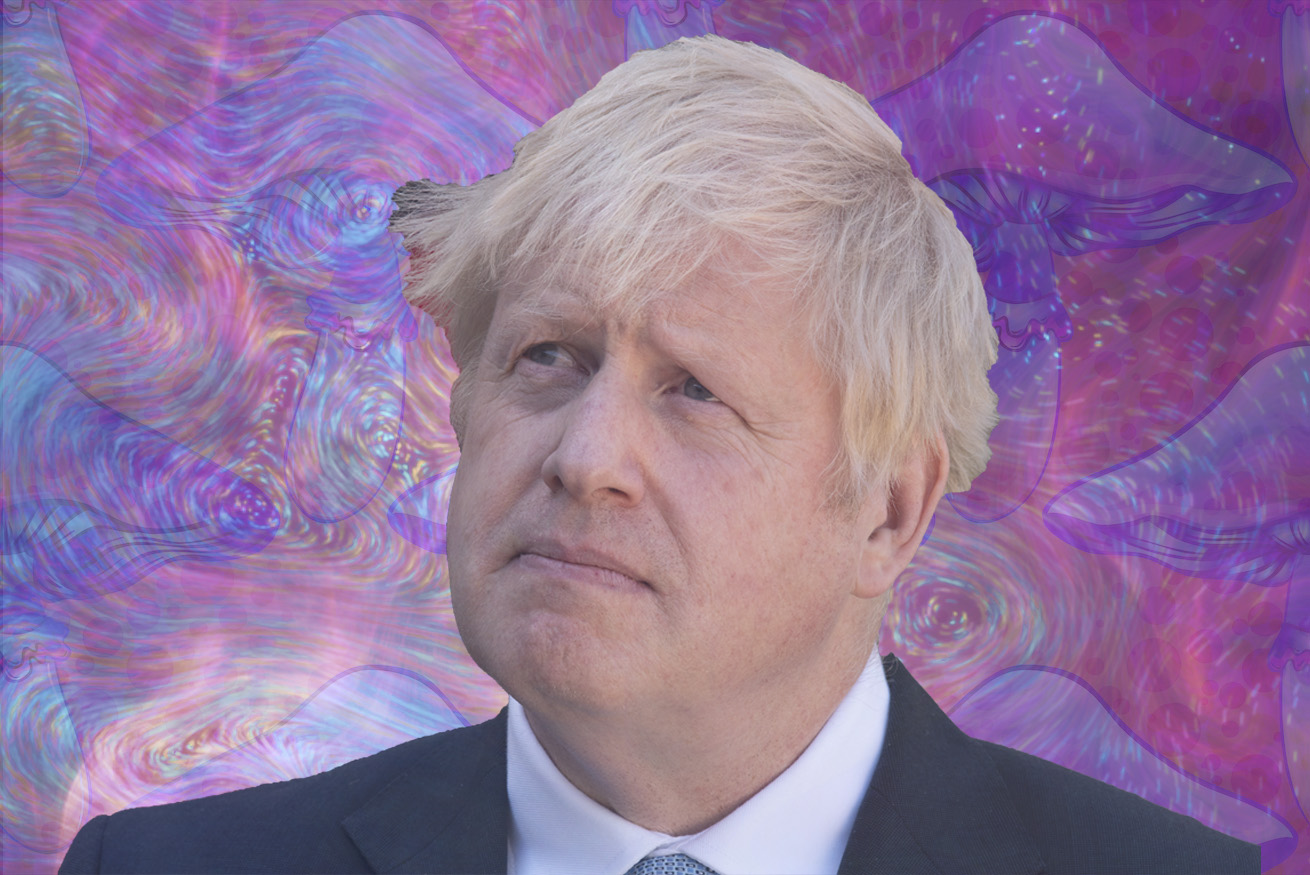
The United Kingdom could become the next country to legalize psilocybin research, if Prime Minister Boris Johnson follows through on his word.
On Wednesday, UK leader said he would look at reducing barriers for researchers working with controlled drugs such as psilocybin—a naturally occurring psychoactive compound found in mushrooms.
As a Schedule 1 drug under the Misuse of Drugs Act, psilocybin (along with other psychedelic drugs such as psilocin, DMT, LSD, MDMA, and mescaline) cannot be lawfully possessed or prescribed in the UK. Biomedical researchers required a Home Office license to study these substances.
During Prime Minister’s Questions, Conservative Member of Parliament and advocate for drug reform Crispin Blunt asked Mr. Johnson to review psilocybin’s classification as a Schedule 1 drug, citing the drug’s “exciting” potential to treat a variety of mental health conditions, such as depression, trauma, and addiction.
Blunt asked: “Will [Mr. Johnson] cut through the current barriers to research into psilocybin and other, similar compounds so that the British public receive, and British science research and British science companies enable the potential treatments into these most debilitating conditions to be delivered at the earliest possible opportunity?”
Boris Johnson responded: “I can say to him that we will consider the Advisory Council on the Misuse of Drugs’ recent advice on reducing barriers to research with controlled drugs such as the one he describes, and we will be getting back to him as soon as possible.”
As chairman of the Conservative Drug Policy Reform Group, Blunt has repeatedly called on the government to urgently re-schedule psilocybin to Schedule 2 of the Misuse of Drugs Act, which he says would make it easier, cheaper, and quicker to facilitate clinical trials using psilocybin. This change would not approve the drug for recreational use, meaning it would still be classified as a Class A drug under criminal law.
Blunt says during a private meeting with the Prime Minister in May, Mr. Johnson told him he had signed off on rescheduling the drug the previous day, but the law has not yet been changed. In a statement last month, Blunt said: “This delay matters. In the 110 days that have passed since the PM’s sign off nearly 2,000 people have taken their own lives, the majority probably preventable when this research is translated into treatment.”
Earlier this year, a poll of UK citizens found the majority of Brits supported the relaxing of research restrictions on psilocybin. It found 55% of survey participants backed the move, while just 13% opposed it, and 31% said they were unsure. The survey also showed that 55% of respondents supported changes to the law to allow veterans in psychiatric distress to access psilocybin-assisted therapy, 58% supported allowing terminally ill patients to access psilocybin-assisted therapy, and 59% of Brits would consider psilocybin-assisted therapy if it was offered to them.





